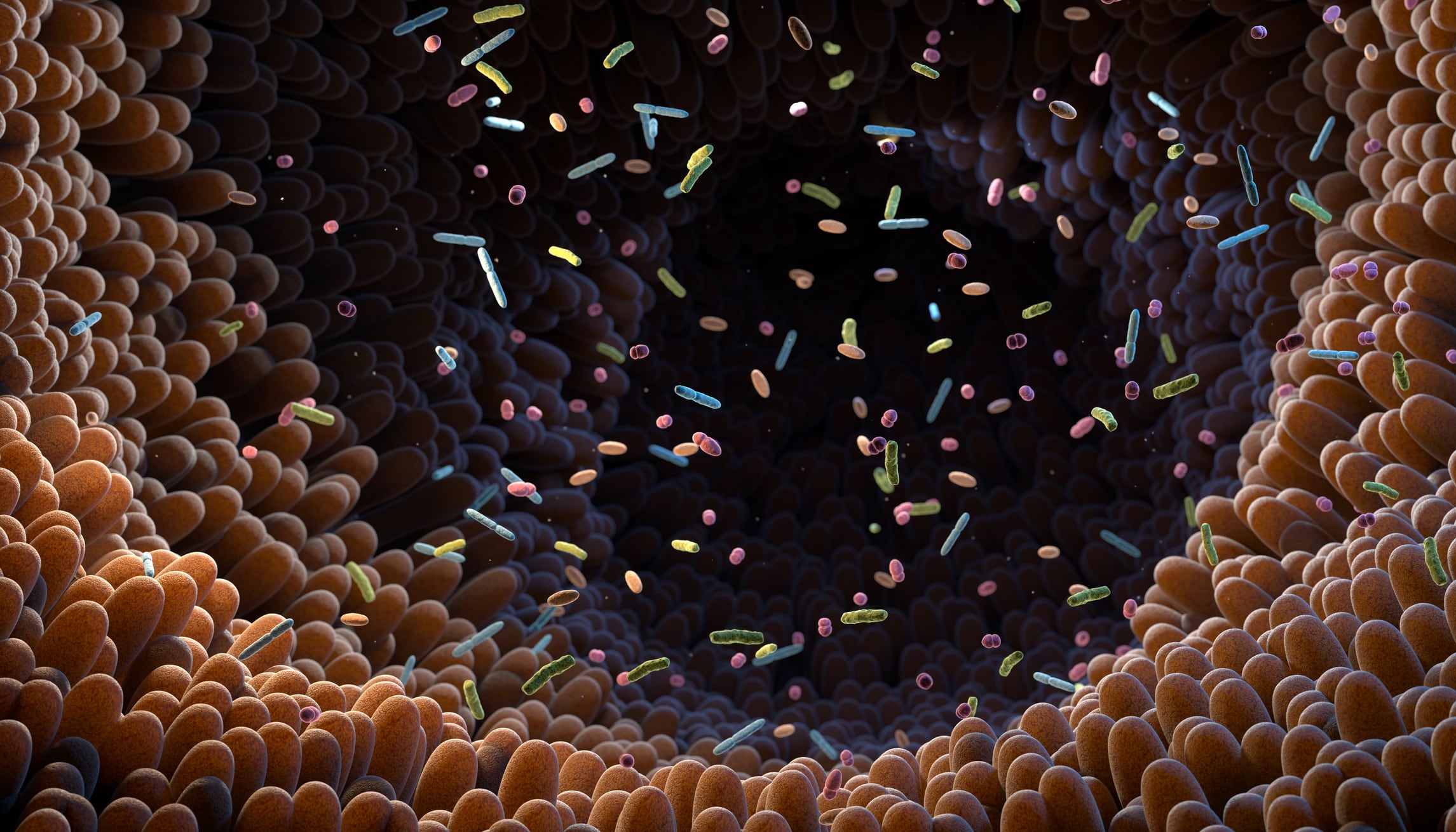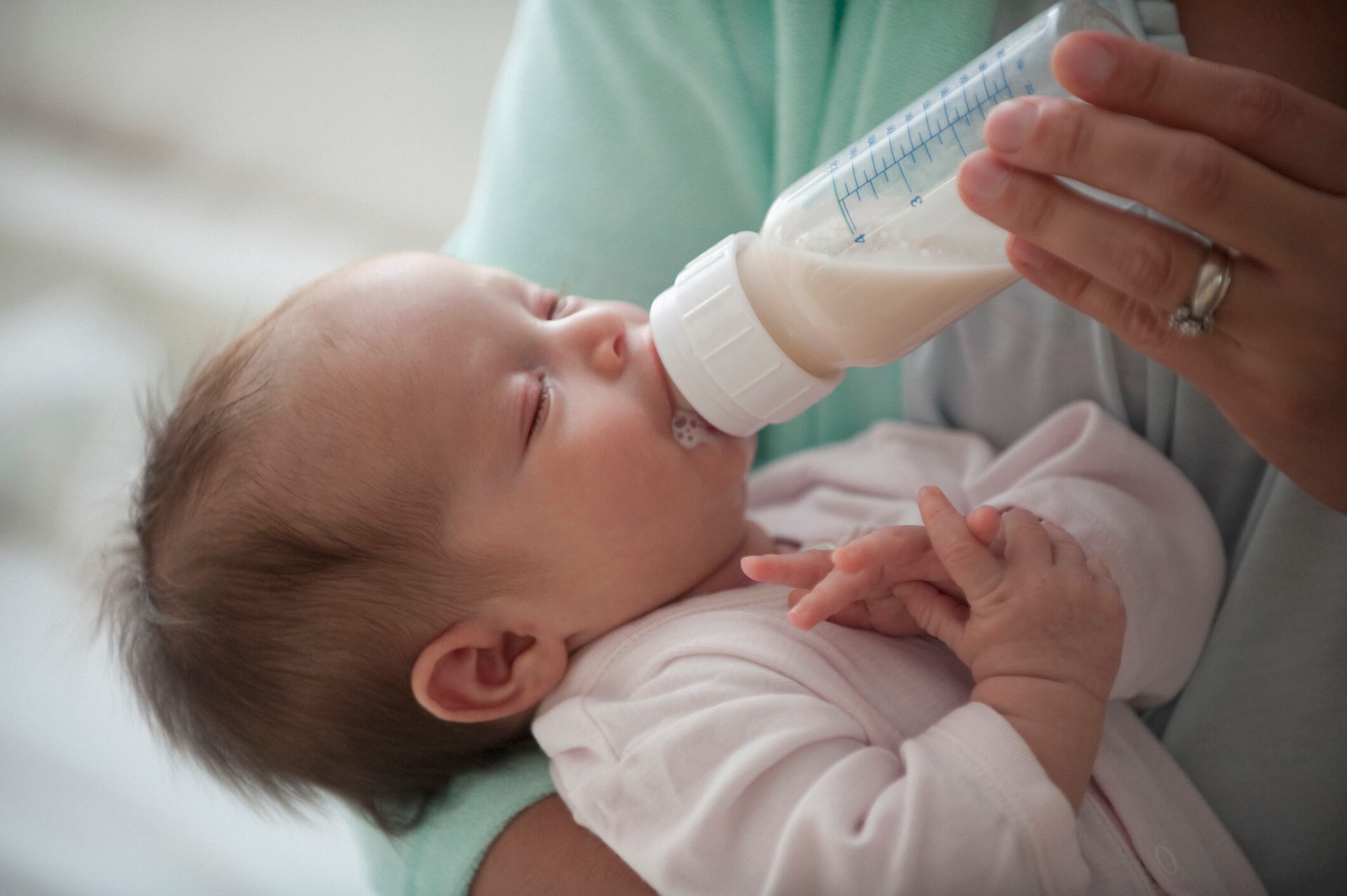Published in The Lancet Microbe, the study is the first to show an association between the makeup of the gut microbiome in the first week of life and hospital admissions for respiratory infections in early childhood.
While the study was purely observational, the researchers say the findings could inform the development of effective infant probiotics to reduce the risk of respiratory illnesses.
“Our work shows that gut microbiota patterns associated with reduced rates of viral lower respiratory tract infection admissions can be detected as early as the first week of life,” wrote the researchers from the Wellcome Sanger Institute and University College London (UCL).
“Neonatal microbiota markers might therefore be used in the future to stratify patients at risk for childhood diseases and guide probiotic selection in clinical trials.”
The Baby Biome Study
Recent research has demonstrated that the first 1,000 days after birth represent a critical window for gut microbiome development, with this early development strongly linked to immune system development and later-life health outcomes.
To explore this concept further, in 2016, UCL recruited nearly 3,500 mother-baby pairs for the Baby Biome Study, creating one of the largest birth cohorts using shotgun metagenomics for gut microbiota determination.
Since then, the research has uncovered important discoveries, including that the mode of delivery significantly impacts the gut microbiome of newborn babies, with babies born vaginally having a different microbiome compared to those born via cesarean section.
Nearly a decade later, researchers are still drawing insights from the prospective birth cohort, shedding light on infants’ microbiome profiles and identifying the bacteria that help digest breast milk and protect babies’ guts from pathogens.
Yet until now, associations between early-life gut microbiota composition and subsequent health consequences had not been explored.
Study details
To conduct their study, Garcia-Mauriño et al. analyzed data from 1,082 babies who had a first-week sequenced stool sample and a median follow-up period of two years.
Using the follow-up data, the researchers were able to determine how many of the babies were admitted to the hospital for a respiratory infection within the first two years of life.
They then examined microbiota features, such as alpha diversity and community structures, to determine whether microbial make-up was linked to risk of respiratory infection.
They found that higher first-week gut microbiota alpha diversity was associated with reduced rates of respiratory-related hospital admissions, suggesting this type of microbiome composition could protect against viral infections.
The bacterial ‘cluster’ which was found to be particularly protective was dominated by Bifidobacterium longum, which was only found in vaginally born babies. However, not all babies who were born vaginally had a lower risk of respiratory infection.
The findings revealed that other babies born vaginally had a similar admission incidence when compared with babies born by cesarean section.
“[These findings] challenge the idea that vaginal birth is always associated with lower rates of disease, at least regarding viral lower respiratory tract infection hospital admissions, hinting that the link is more nuanced,” the researchers wrote.
Bifidobacterium ‘play an important role’ in immune regulation in infants
Stephanie Culler, microbiome scientist and founder of CEO of Persephone Biosciences, says the findings underscore the “critical nature” of Bifidobacterium in infants.
“The observation that Bifidobacterium, particularly B. longum, may play an important role in prevention of viral lower respiratory tract infections further strengthens the case for early adoption of Bifidobacterium probiotics,” she told NutraIngredients.
“Based on this dataset alone, it is hard to determine a mechanism of action, but when combined with other findings in the field, the data strongly suggests that Bifidobacterium play an important role in immune regulation in infants.”
Co-author of the research Nigel Field says larger studies such as the Microbes, Milk, Mental Health and Me (4M) project are now crucial to further shape our understanding of how our microbiomes and health interact.
“Funded by Wellcome, the 4M project will track the health of 10,000 babies and their families, from early pregnancy to childhood,” he said. “It aims to unravel the complex interactions between genetics, environment and early life exposures on long-term health outcomes and seeks to explore how factors such as the infant gut microbiome and early life feeding affect brain development, behaviour, emotions and mental health later in life.”
Source: The Lancet Microbe. doi: 10.1016/j.lanmic.2024.101072. “Investigation of associations between the neonatal gut microbiota and severe viral lower respiratory tract infections in the first 2 years of life: a birth cohort study with metagenomics”. Authors: C. Garcia-Mauriño, et al.




